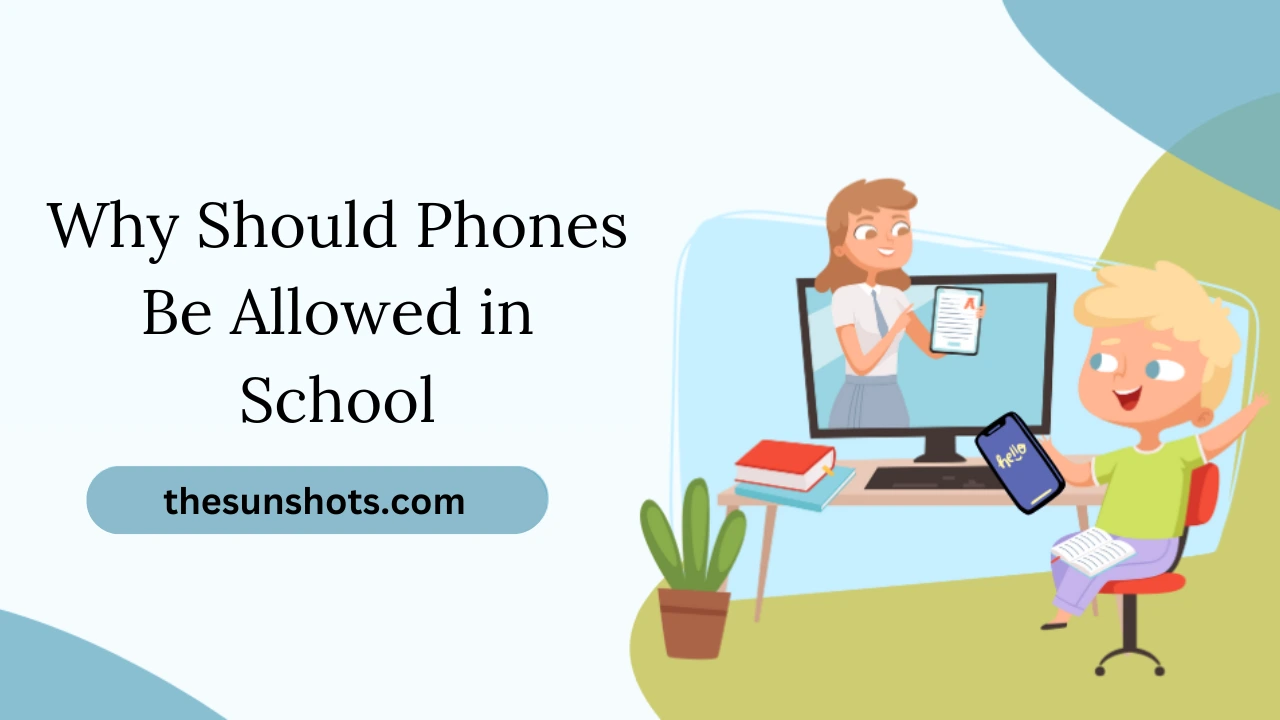In today’s tech-driven world, the debate over whether phones should be allowed in schools continues to be a hot topic among educators, parents, and students alike. While some argue that phones are a distraction, others believe that they can be valuable educational tools. So, why should phones be allowed in school? In this article, we’ll explore the many reasons why incorporating mobile phones in educational environments can enhance learning, improve communication, and better prepare students for the future.
1. Phones as Learning Tools
One of the strongest arguments for why phones should be allowed in school is their potential as learning tools. Smartphones today are equipped with advanced features, apps, and internet access, all of which can significantly enhance the learning experience. Here’s how:
- Access to Information: With just a few taps, students can access vast resources, from educational websites to research papers, helping them better understand the material.
- Educational Apps: Phones provide access to a range of apps designed to aid in learning, such as language-learning apps, math problem solvers, and study planners.
- Interactive Learning: Teachers can integrate mobile-based quizzes, polls, and other interactive tools during lessons, making learning more engaging and interactive.
Given these advantages, why should phones be allowed in school? Because they can enrich the educational process and make learning more dynamic and accessible.
2. Promoting Digital Literacy
In an age where technology is central to many professions, developing digital literacy is essential. Allowing phones in school helps students learn how to use technology responsibly and efficiently. Understanding how to navigate apps, online platforms, and the internet is crucial for students as they enter the workforce. So, why should phones be allowed in school? Because they play an essential role in preparing students for the digital world they’ll face in their careers.
Furthermore, by allowing phones in schools, teachers can offer lessons on responsible technology use, including online etiquette, the importance of data privacy, and how to critically assess information found online.
3. Enhancing Communication Between Parents, Students, and Schools
Another key reason why phones should be allowed in school is that they improve communication. In today’s busy world, staying in touch with family members is important. By allowing phones in school, students can quickly reach their parents or guardians in case of an emergency, transportation changes, or simply to provide updates on their day.
From the school’s perspective, mobile phones also allow teachers and administrators to send out important announcements or updates to students and parents in real time. Whether it’s a schedule change, school closure, or an emergency, mobile phones keep everyone connected and informed.
4. Preparing for Emergencies
Safety is always a priority in schools, and phones can serve as a valuable tool in emergency situations. Imagine a lockdown or natural disaster — having a phone on hand can enable students to contact authorities, parents, or emergency services. So, why should phones be allowed in school? Because they can be lifesavers in emergencies, providing instant access to help and information when it’s needed most.
Many schools have started implementing safety protocols that incorporate mobile phones as part of their emergency preparedness plans, further reinforcing the idea that having phones in school can be a smart safety measure.
5. Encouraging Self-Discipline and Responsibility
A common argument against allowing phones in school is the concern that they’ll be distracting. However, allowing phones can be an opportunity to teach students responsibility and self-discipline. By setting clear guidelines on when and how phones can be used, students learn to manage their time and use their devices in a way that supports their education rather than detracts from it.
So, why should phones be allowed in school? Because it provides an opportunity for students to develop important life skills, such as self-control and time management, which are crucial both in school and beyond.
6. Supporting Differentiated Learning
One-size-fits-all education is becoming a thing of the past, and mobile phones can support differentiated learning. Every student learns differently, and phones offer personalized tools that can cater to these needs. For example, students with learning disabilities might benefit from text-to-speech apps, while others might need visual aids or reminders to stay organized.
By accommodating different learning styles and needs, phones can contribute to a more inclusive educational environment. So, why should phones be allowed in school? Because they can support tailored educational experiences that benefit every student.
7. Bridging the Technology Gap
In many schools, there’s an uneven distribution of technology resources, with some students having access to laptops and tablets while others do not. Allowing students to bring their phones can help bridge this technology gap, ensuring that all students have access to the internet and educational tools.
This is another reason why phones should be allowed in school. They offer a cost-effective way to provide students with access to technology, particularly in schools where budgets may not allow for widespread access to computers.
Conclusion:
So, why should phones be allowed in school? The reasons are compelling. Phones can enhance learning by providing access to educational resources, promote digital literacy, and improve communication between students, parents, and schools. They also offer safety advantages during emergencies and can teach students valuable skills like responsibility and self-discipline.
Moreover, phones support differentiated learning and help bridge the technology gap in schools with limited resources. By setting clear guidelines on how and when to use phones responsibly, schools can harness their potential to create a more dynamic and inclusive learning environment.
In the modern educational landscape, the question is not whether phones should be allowed in school but how they can be used effectively to enhance the learning experience.
Read Our More Blogs…..



